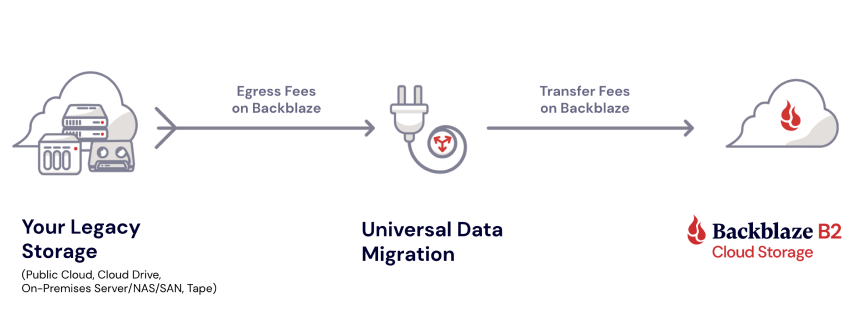LinkDaddy Universal Cloud Storage: Unmatched Safety And Security for Your Data
LinkDaddy Universal Cloud Storage: Unmatched Safety And Security for Your Data
Blog Article
Discovering the Duty of Universal Cloud Storage Solutions in Data Security and Conformity
As services increasingly rely on cloud storage options to take care of and protect their information, checking out the detailed function these solutions play in making sure information protection and conference regulatory requirements is crucial. By diving right into the nuances of universal cloud storage space solutions, a clearer understanding of their effect on information security and regulative conformity arises, shedding light on the intricacies and possibilities that lie ahead.
Relevance of Cloud Storage Solutions
Cloud storage space solutions play a pivotal role in contemporary information monitoring strategies due to their scalability, availability, and cost-effectiveness. With the rapid development of information in today's digital age, companies are progressively transforming to shadow storage space remedies to fulfill their developing requirements. Scalability is a vital benefit of cloud storage space, permitting organizations to easily adjust their storage capacity as data requirements vary. This versatility guarantees that business can effectively manage their data without the need for significant in advance investments in equipment facilities.
Access is an additional important facet of cloud storage solutions. By storing information in the cloud, individuals can access their information from anywhere with a net connection, helping with partnership and remote job. This access promotes functional effectiveness and enables seamless sharing of information across groups and places.
Furthermore, several cloud storage carriers provide pay-as-you-go rates designs, permitting organizations to pay just for the storage space capacity they utilize. On the whole, the importance of cloud storage solutions lies in their capability to simplify data administration procedures, enhance ease of access, and reduced functional costs.
Data Defense Techniques With Cloud
By encrypting information prior to it is published to the cloud and preserving control over the encryption keys, companies can protect against unapproved gain access to and reduce the risk of information violations. Multi-factor verification, strong password plans, and normal gain access to evaluations are some techniques that can enhance information defense in cloud storage services.
Consistently backing up data is an additional vital aspect of data security in the cloud. By combining file encryption, gain access to controls, backups, and normal protection evaluations, organizations can establish a durable data protection strategy in cloud environments.
Compliance Factors To Consider in Cloud Storage
Offered the vital nature of data defense techniques in cloud environments, organizations should likewise focus on compliance factors to consider when it comes to keeping information in the cloud. When using cloud storage space solutions, businesses need to guarantee that the service provider abides with industry-specific requirements such as GDPR, HIPAA, or PCI DSS, depending on the kind of information being stored.

Challenges and Solutions in Cloud Safety
Making sure durable protection measures in cloud environments presents a diverse obstacle for companies today. One of the primary difficulties in cloud safety and security is data violations. Harmful stars regularly target cloud systems to get unauthorized accessibility to delicate info. To minimize this danger, companies need to execute strong file encryption protocols, access controls, and normal safety audits. One more challenge is the shared duty design in cloud computing, where both the cloud provider and the consumer are accountable for various aspects of security. This can lead to confusion and gaps in protection insurance coverage if not plainly specified. Organizations needs to clearly outline duties and duties to guarantee comprehensive protection measures are in place.

Future Fads in Cloud Information Security
The evolving landscape of cloud information protection is noted by a growing focus on aggressive defense approaches and adaptive security steps (universal cloud storage). As innovation advances and cyber risks end up being more advanced, organizations are progressively concentrating on anticipating analytics, man-made knowledge, and equipment understanding to enhance their information security capacities in the cloud
One of the future patterns in cloud information security is the assimilation of automation and orchestration devices to simplify safety and security procedures and action processes. By automating regular tasks such as danger discovery, occurrence feedback, and patch monitoring, organizations can enhance their total security position and much better shield their information in the cloud.
Furthermore, the adoption of a zero-trust safety and security model is gaining grip in the realm of cloud information protection. This method presumes that hazards might be both outside and internal, calling for continual verification and authorization for all customers and tools accessing the cloud environment. By carrying out a zero-trust framework, organizations can reduce the danger of information violations and unapproved accessibility to sensitive information kept in the cloud.
Conclusion

Report this page